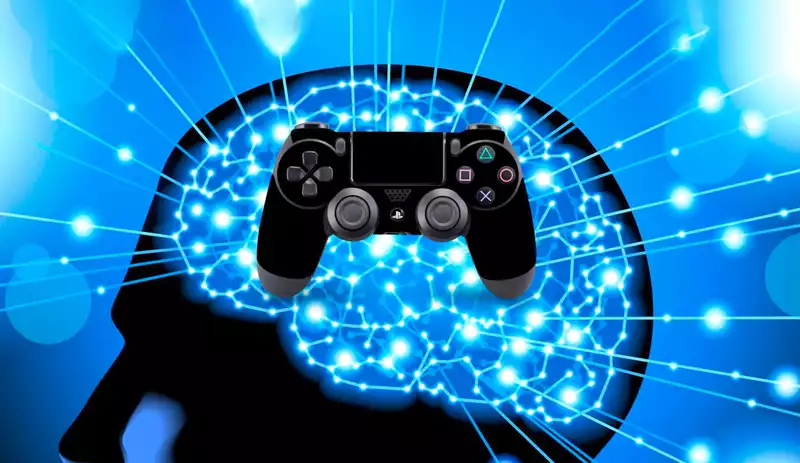You can also be interested in these:
- The history of RPG and why it is beloved by many
- The most costly Dota 2 types of equipment for tournaments
- The most successful academic lineups in CS:GO eSports
- OSRS: Get ready for the Tombs of Amascut
Older generations always worry about the impact video games have on young people and kids. However, are video games all that bad? Are there actual reasons to worry about students playing video games several evenings a week? Well, some studies show that such gaming can even have a positive influence on players. Thus, students can learn new skills, socialize, learn about technology, and much more. Overall, there is more to gaming than meets the eye. Students can benefit from playing video games. Yet, there are nuances to consider. So, let’s see if video games can make students smarter and other advantages of gaming.

Problem-solving skills
Most games do make players think about each move. Hence, gamers need to analyze a situation, judge the risks and consequences and find a solution. Of course, doing such techniques on repeat for hours will make any person a pro in problem-solving skills. So, yes, students can clearly benefit from playing certain video games. They learn to evaluate and adjust. Aren’t these the right qualities for the current education system?
Problem-solving skills are crucial in personal and professional lives. Every day we are faced with numerous issues to solve. Such processes take good analytical skills, fast-thinking, and even courage. So, it’s good that video games teach us all of that and more. Thus, young people can achieve greater results by applying their newly learned skills in real life.
Overall, games are great at building so-called ‘fluid intelligence’. It’s the ability to apply strategic thinking and quickly apply newly discovered knowledge to different situations. By playing, gamers have to change their focus every minute or so, looking for unique solutions to various scenarios. Such processes can be later applied in learning, where students will react faster to problems in front of them and use all their accumulated skills to find the most suitable solutions. Such solutions can be checking out https://scamfighter.net/review/eduguide.pro whenever late with the deadline or organizing study teamwork before exams.
Real-world simulator
Now, of course, most games, fortunately, are nothing like the real world. You can be in outer space, chasing bandits in the Wild West, or be an elf in a magical world. These experiences are nowhere close to real life. However, the way characters behave, the situations gamers are in, the dialogs, and much more are taken from the real world. Thus, these games can be a rare simulator for real-life situations.
Thus, gaming can teach children about bravery, responsibility, communication, etc. Of course, not all games are exemplary in this department. Yet, even bad examples can show children how not to behave in the real world. Thus, such games can teach about success in the real-life world and how to achieve it. Overall, it doesn’t matter how young or old a player is. There are often lessons to learn at any age. Games can provide you with new knowledge to apply in your personal, academic, or professional lives.
Educational games
Lastly, there is a whole subgenre in video games focused solely on education. Thus, video games can be a great asset in education. Students get to play while also learning new information or practicing different skills. Of course, such learning has its strong advantages. For example, this type of learning can be more interactive, engaging, fun, and individual. Thus, students are more prone to spending time learning this way instead of procrastinating.
On the other hand, educational games may have their advantages. For instance, such games can be quite repetitive with little room for creativity or improvisation. In addition, they also call for quick rewards, making students less focused in the long run. Of course, there is also a matter of proper game design. Thus, a game should be aligned with the official education program and deliver lessons accordingly.
It’s all in the context
Overall, video games can have very different effects on young people. It all depends on the context. For example, modern games come in a great variety of genres and types. Thus, playing certain games may increase one’s ability to react, solve problems, and multitask. Other games can improve one’s reading and math skills. In fact, some games can even open up the creative side. Thus, these students are less prone to use writing sites like essaypro.com and do their creative academic writing themselves. Nevertheless, there is nothing wrong with asking for professional assistance. So, in general, video games can bring certain benefits to one’s study experience.
On the other hand, some games can be addictive or simply serve as a major distraction to studies. Hence, it can all depend on how students approach their gaming. Becoming smarter with video games is certainly possible. Most games will teach you something new to apply in real life. However, whether a person is willing to learn and notice those lessons is up to each gamer.
More stories like this
- The history of RPG and why it is beloved by many
- The most costly Dota 2 types of equipment for tournaments
- The most successful academic lineups in CS:GO eSports
- OSRS: Get ready for the Tombs of Amascut
- eSports careers for those who can’t play
- 5 Underrated pro tips in Valorant